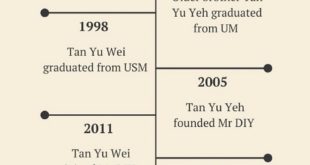Singapore’s travel and tourism industry is battered due to the Covid-19 pandemic, and has seen yet another loss.
STA Travel, a company focused on providing package holidays for students and young people, has been reported to be closing down for good.
An announcement on the STA Travel website states that they are unable to assist anyone, and those who had previous or live bookings will “receive further communication in the coming days.”

On Facebook, the tour agency is listed as “permanently closed”, with its last post on the page dated August 19 this year.
STA Travel stopped operating after its parent company in Switzerland filed for insolvency last month.
This year, the company was reported to have had almost “2,200 people working in over 200 stores around the globe“.
It is unclear how many Singaporean staff will be affected by its closure.
More Than 600 Creditors
Besides staff, The Straits Times said that as many as 682 customers who are listed as creditors will be affected.
Audit firm Deloitte & Touche has issued a notice which listed the potential creditors on behalf of STA Travel last week.
According to this list, the biggest sum of S$ 84,088 is said to be owed to an individual.
The agency also lists organisations such as National University of Singapore (NUS), Singapore Management University (SMU), and Nanyang Technological University (NTU) and Republic Polytechnic as creditors.
Some of them have been refunded in STA Travel vouchers, with little guarantee that they will get their cash back.

The tour agency was started by two Australian students in 1979, and was known as Student Travel Australia before the brand expanded globally.
STA Travel is also well-known amongst the local student population in Singapore, with outlets in NUS, SMU and NTU.
Many students would patronise these stores to book discounted flights or access special student deals when planning for their studies abroad.
The Consumers Association of Singapore said it received 11 complaints against STA Travel since January 1 this year.
The situation is similar around the world, with news reports in the United Kingdom, Australia and New Zealand highlighting the same issue.
Featured Image Credit: Nanyang Technological University



